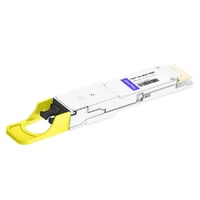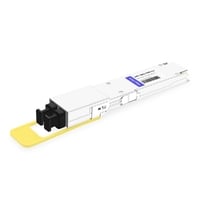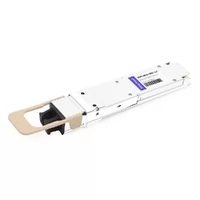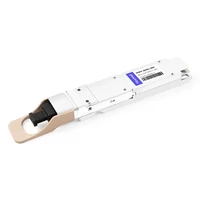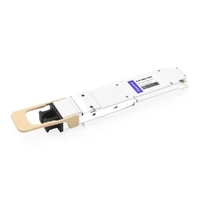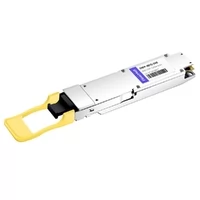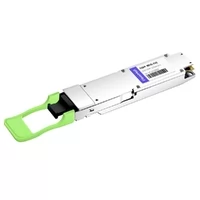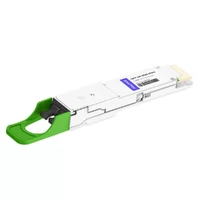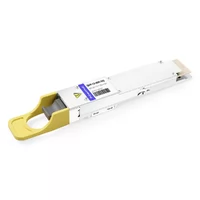The first batch of switches with 800G ports has hit the market, allowing service providers to continue evaluating opportunities and planning deployments. 800G client optical modules have been launched, supporting two 400GE connections or eight 100GE connections, and an 800GE version will be introduced as standards evolve. The technological advancement of 400G is simplifying the transition to 800G, enabling the use of dual-density optical modules and branched connection schemes.
The introduction of 800G switch ports, optical modules, and DACs presents a significant opportunity for service providers to upgrade network performance without waiting for the 800GE standard. The work of the IEEE 802.3df 800G and 1.6T task groups, along with the development of industry technology, will ensure a robust roadmap for future upgrades. The rapid deployment of 400G indicates that the industry can quickly provide the latest solutions, and as service providers expand and upgrade their data centers, they are ready to support an equally swift shift to 800G. The launch of 25.6T switches with 800G ports creates new opportunities for data center operators to utilize networks that can significantly enhance performance while reducing complexity, cost, and power consumption.
As shown in Figure 1, a 25.6T switch can replace six 12.8T switches. Each 800G port on the 25.6T switch has eight 100G PAM4 channels and will support eight 100GE connections, two 400GE connections, or a single 800GE interface. By using 100G PAM4 serial interfaces, the number of signal channels on the 25.6T switch is the same as each of the six 12.8T switches, reducing the overall complexity of the solution. Replacing six switches with one switch under the same 25.6T network capacity will significantly reduce power consumption and costs.
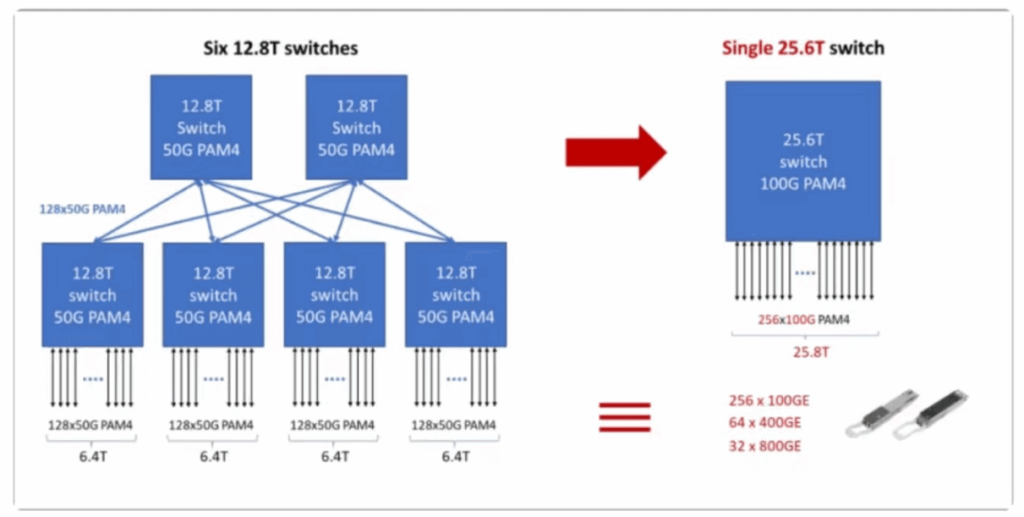
Figure 1. Reducing complexity, cost, and power consumption with 25.6T switches (Source: Earlswood Marketing)
Figure 2 shows a 25.6T platform with 800G ports, which has 32 800G ports in a compact 1RU package, and supports 64 400GE links or 256 100GE links using breakout cables. Below are some use cases that leverage this flexibility.

Figure 2. A 25.6T platform with 32 800G ports
Figure 3 shows an 800G port that supports two IEEE 400G BASE-FR4 connections up to 2km, providing high-density 400G interfaces. Compared to a 12.8T system, the configuration with breakout cables allows a 1RU 25.6T switch system to double the number of 400GE links supported. This common configuration is being deployed in various applications, including high-density AI/ML clusters and ultra-high-definition video processing in data centers. The lower configuration uses two IEEE 400G BASE-FR4 links to achieve an 800G connection up to 2km. Network deployments using this configuration are being rolled out for high-performance computing (HPC) systems that support scientific research and other extremely high-processing applications.
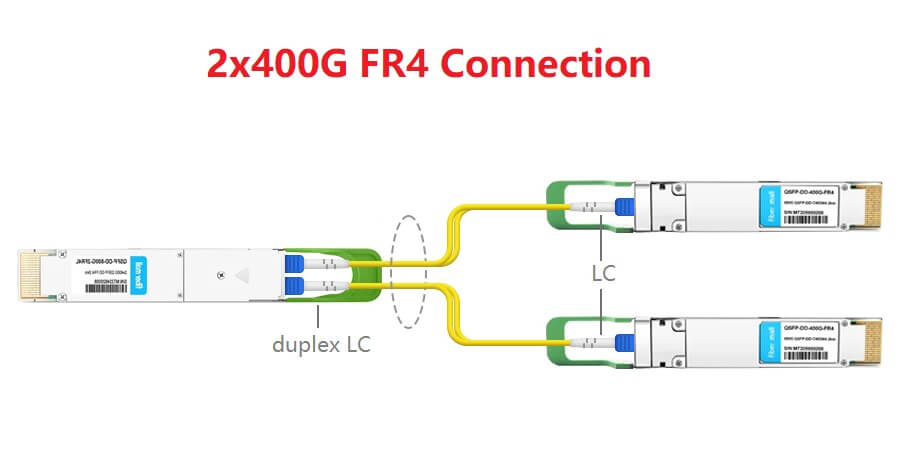
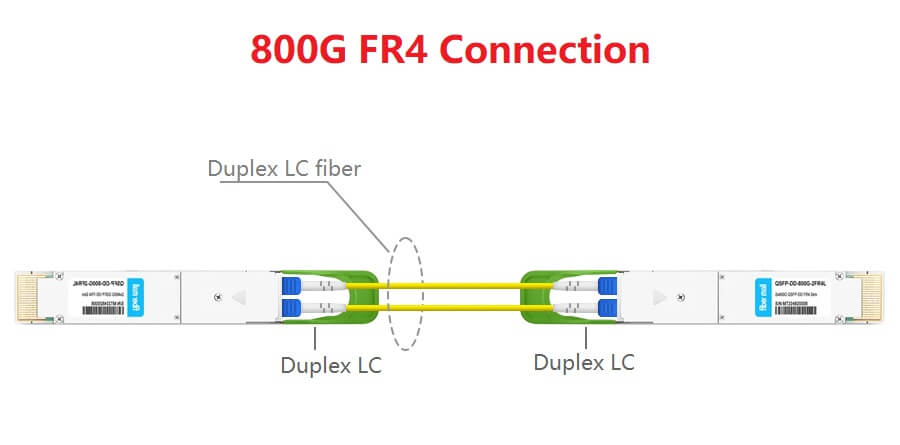
Figure 3. 2x400G QSFP-DD to 400GBASE-FR4 breakout
Figure 4 shows an 800G port that supports eight IEEE 100G BASE-DR (up to 500m)/IEEE 100GBASE-FR (up to 2km)/IEEE 100GBASE-IR (up to 10km) connections, providing high-density 100G interfaces. The figure shows the breakout to eight independent 100G links, the breakout to two 400G connections, and the 800G direct connection. These configurations are ideal for upgrading peer/hosted networks and distributed data centers that require many 100GE network connections.
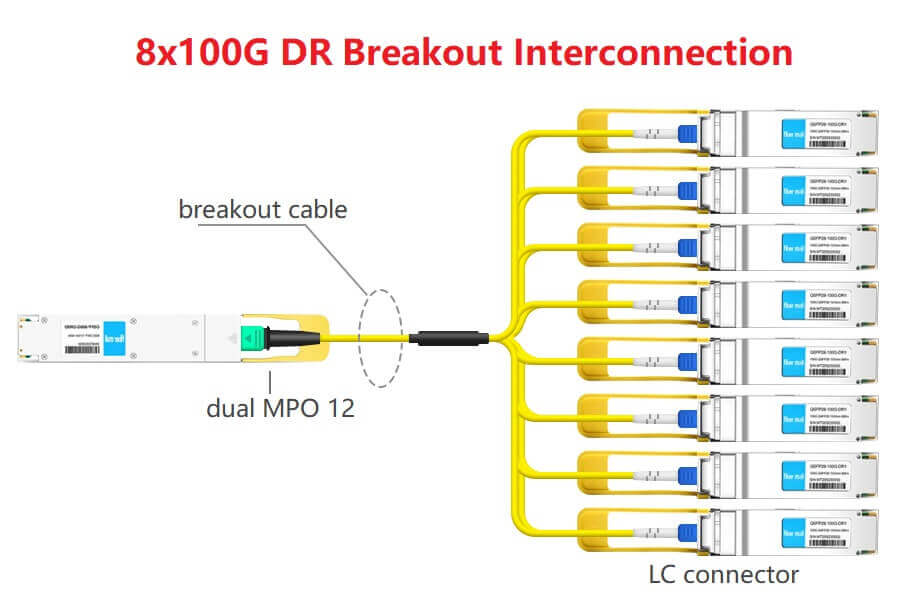
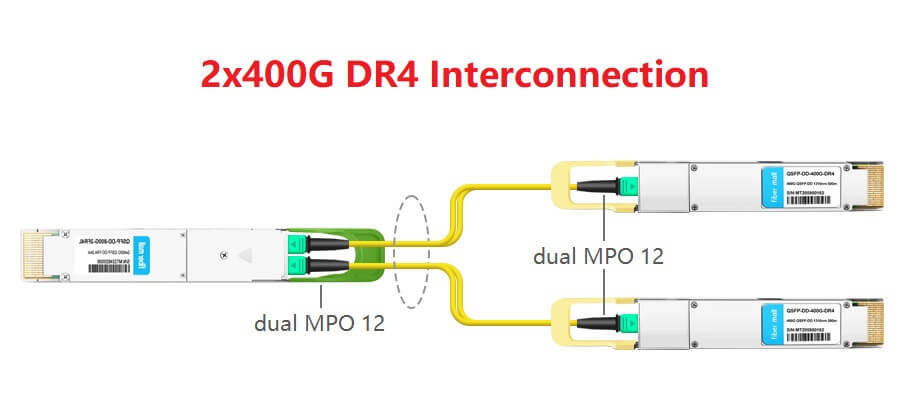
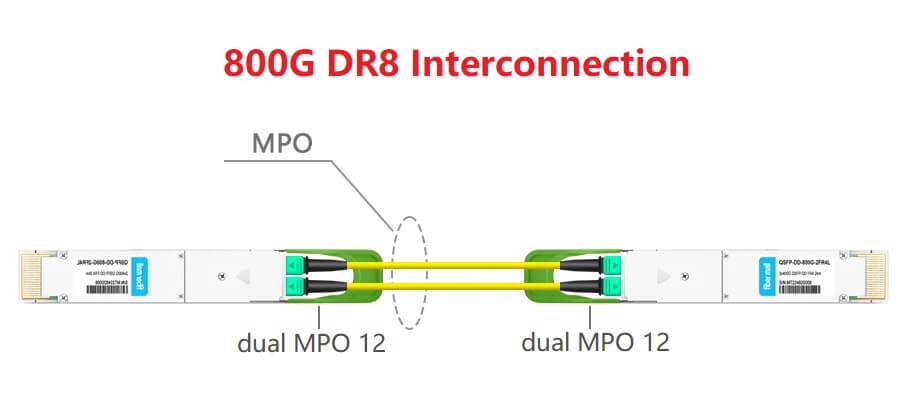
Figure 4. 8x100G to 100GBASE-DR/FR breakout
In the digital age of the future, 800G technology will undoubtedly become a huge driving force in the communications field, leading us to an unprecedented high-speed, efficient, and highly interconnected future. Its excellent transmission speed and huge bandwidth enable various industries to embrace new application scenarios and innovation opportunities.
Related Products:
-
 QSFP-DD-800G-DR8D QSFP-DD 8x100G DR PAM4 1310nm 500m DOM Dual MPO-12 SMF Optical Transceiver Module
$1250.00
QSFP-DD-800G-DR8D QSFP-DD 8x100G DR PAM4 1310nm 500m DOM Dual MPO-12 SMF Optical Transceiver Module
$1250.00
-
 OSFP-800G-DR8D-FLT 800G-DR8 OSFP Flat Top PAM4 1310nm 500m DOM Dual MTP/MPO-12 SMF Optical Transceiver Module
$1199.00
OSFP-800G-DR8D-FLT 800G-DR8 OSFP Flat Top PAM4 1310nm 500m DOM Dual MTP/MPO-12 SMF Optical Transceiver Module
$1199.00
-
 OSFP-800G-SR8D-FLT OSFP 8x100G SR8 Flat Top PAM4 850nm 100m DOM Dual MPO-12 MMF Optical Transceiver Module
$650.00
OSFP-800G-SR8D-FLT OSFP 8x100G SR8 Flat Top PAM4 850nm 100m DOM Dual MPO-12 MMF Optical Transceiver Module
$650.00
-
 OSFP-800G-SR8 OSFP 8x100G SR8 PAM4 850nm MTP/MPO-16 100m OM4 MMF FEC Optical Transceiver Module
$650.00
OSFP-800G-SR8 OSFP 8x100G SR8 PAM4 850nm MTP/MPO-16 100m OM4 MMF FEC Optical Transceiver Module
$650.00
-
 OSFP-800G-SR8D OSFP 8x100G SR8 PAM4 850nm 100m DOM Dual MPO-12 MMF Optical Transceiver Module
$650.00
OSFP-800G-SR8D OSFP 8x100G SR8 PAM4 850nm 100m DOM Dual MPO-12 MMF Optical Transceiver Module
$650.00
-
 OSFP-800G-DR8 OSFP 8x100G DR PAM4 1310nm MPO-16 500m SMF DDM Optical Transceiver Module
$900.00
OSFP-800G-DR8 OSFP 8x100G DR PAM4 1310nm MPO-16 500m SMF DDM Optical Transceiver Module
$900.00
-
 OSFP-800G-2FR4L OSFP 2x400G FR4 PAM4 1310nm 2km DOM Dual Duplex LC SMF Optical Transceiver Module
$1200.00
OSFP-800G-2FR4L OSFP 2x400G FR4 PAM4 1310nm 2km DOM Dual Duplex LC SMF Optical Transceiver Module
$1200.00
-
 OSFP-800G-FR8 OSFP 8x100G FR PAM4 1310nm MPO-16 2km SMF Optical Transceiver Module
$1200.00
OSFP-800G-FR8 OSFP 8x100G FR PAM4 1310nm MPO-16 2km SMF Optical Transceiver Module
$1200.00
-
 QSFP-DD-800G-2FR4L QSFP-DD 2x400G FR4 PAM4 CWDM4 2km DOM Dual duplex LC SMF Optical Transceiver Module
$1800.00
QSFP-DD-800G-2FR4L QSFP-DD 2x400G FR4 PAM4 CWDM4 2km DOM Dual duplex LC SMF Optical Transceiver Module
$1800.00
-
 QSFP-DD-800G-DR8 800G-DR8 QSFP-DD PAM4 1310nm 500m DOM MTP/MPO-16 SMF Optical Transceiver Module
$1300.00
QSFP-DD-800G-DR8 800G-DR8 QSFP-DD PAM4 1310nm 500m DOM MTP/MPO-16 SMF Optical Transceiver Module
$1300.00

